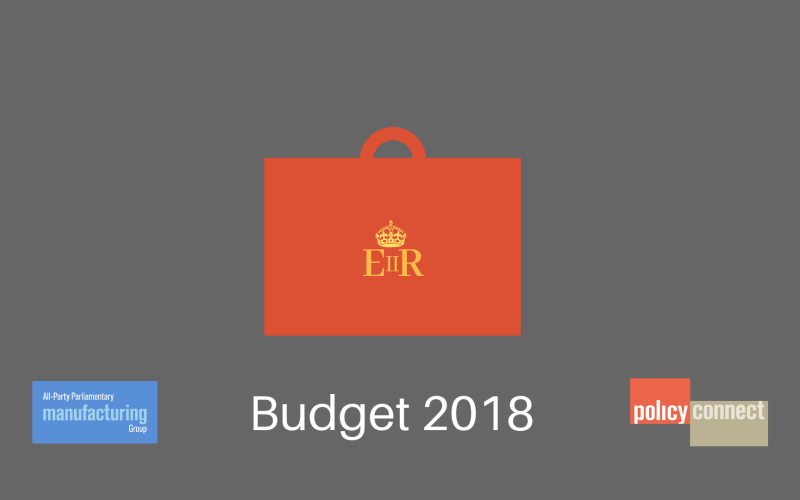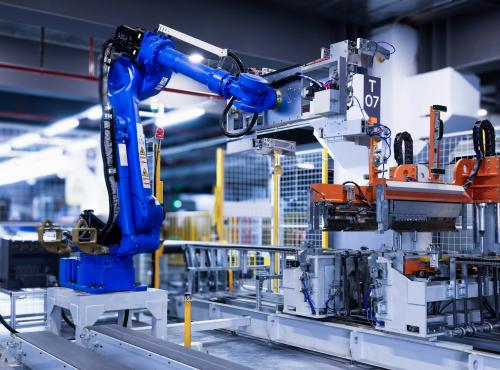Key manufacturing takeaways from the 2018 budget
Chancellor Phillip Hammond delivered his budget in the style we have become accustomed to but with what felt like a distinct change in direction. We've gone through this year's budget and picked out some key points for UK manufacturing in R&D, Skills, Trade, Investment, Energy and Plastics.
R&D
- £1.6bn earmarked for R&D funding to support Artificial Intelligence (AI), quantum computing, future manufacturing, and nuclear fusion
- £1.1bn to the Industrial Strategy Challenge Fund (ISCF) projects, including £121m specifically for Made Smarter projects
- Investment of up to £25 million through Knowledge Transfer Partnerships (KTPs) to boost business productivity
- £115m for the UK's Digital and Medicines Discovery Catapults.
Skills
- £150m in funding for fellowships to foster the UK's burgeoning skills pool with both homegrown and international talent
- Reduction in the co-investment rate for non-Levy paying businesses from 10% to 5% and flexibilities for Levy payers.
Trade
- UK Export Finance (UKEF) will see a one-off increase to its Direct Lending Facility of up to £2bn over 2020-21 and 2021-22.
Investment
- Increased the Annual Investment Allowance (AIA) threshold from £200,000 to £1 million for the next two years.
Energy
- A five-year £315 million Industrial Energy Transformation Fund to support businesses with high energy use to transition to a low carbon future.
Plastics
- A new tax on on the on the production and import of plastic packaging from April 2022 of plastic packaging which contains less than 30% recycled plastic*
- Reform the Packaging Producer Responsibility System, which will aim to increase producerresponsibility for the costs of packaging waste, including plastic*.
*Both of these measures are subject to consultation in the coming months.




